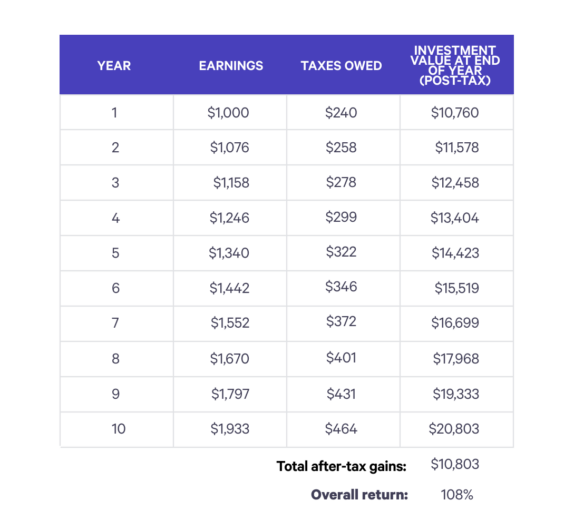Did you know that some day traders spend more time worrying about taxes than trading itself? Navigating the tax implications of day trading can be complex, but understanding them is crucial for maximizing your profits. This article breaks down essential tax considerations for day traders, including what taxes to pay, how profits are taxed, and the distinctions between short-term and long-term capital gains. We'll also explore trader tax status, the impact of marking to market, and potential deductions. Additionally, we’ll cover important tax forms, the wash sale rule, record-keeping requirements, and the taxation of futures and options. Lastly, find out how international traders are affected and discover strategies to minimize your tax liability. With insights from DayTradingBusiness, you’ll be better equipped to tackle the tax landscape in your trading journey.
What taxes do day traders need to pay?
Day traders must pay income tax on their profits, which are treated as ordinary income if they qualify as traders. They may also owe self-employment tax on net earnings from trading activity. If they meet the IRS criteria for trader status, they can deduct trading expenses and potentially elect mark-to-market accounting, affecting how gains and losses are reported. Short-term capital gains apply to profits from holding securities for less than a year. State taxes may also be due depending on the trader’s location.
How are day trading profits taxed?
Day trading profits are taxed as short-term capital gains, meaning they are taxed at your ordinary income tax rate. If you qualify as a trader in securities, you might elect to use mark-to-market accounting, which treats gains and losses as ordinary income and losses. Otherwise, profits from day trading are subject to federal income tax, and possibly state taxes, on the gains realized from buying and selling securities within the same day. Keep detailed records of all trades for accurate reporting.
What is the difference between short-term and long-term capital gains for traders?
Short-term capital gains are profits from assets held for one year or less, taxed at your ordinary income rate. Long-term capital gains come from assets held over a year, taxed at a lower, preferential rate. For day traders, most gains are short-term, meaning higher taxes, while long-term gains benefit from lower rates if assets are held longer than a year.
Do day traders qualify for trader tax status?
Yes, day traders can qualify for trader tax status if they actively trade securities with substantial frequency, intent to profit from short-term market swings, and meet IRS criteria. This status allows for more favorable tax treatment, like deducting trading expenses directly against income. However, meeting the requirements involves demonstrating a consistent, substantial trading activity and a business-like approach.
How does marking to market affect day trader taxes?
Marking to market allows day traders to treat their securities as if they sold them at fair market value at year-end, which means gains and losses are recognized daily. This can lead to offsetting gains and losses immediately, reducing taxable income in some cases. It simplifies tax reporting by eliminating the need to track individual purchase and sale lots, but it also means all unrealized gains or losses are taxed or deducted as if realized. Overall, marking to market can increase tax efficiency for active traders but may also accelerate tax liabilities.
What deductions can day traders claim?
Day traders can claim deductions for expenses directly related to their trading activities, such as trading commissions, data feeds, software, and hardware. They can also deduct home office expenses if the space is used exclusively for trading. Additionally, expenses like educational courses, journal keeping, and professional services are deductible. Losses from trading can offset gains, and if trading qualifies as a business, they may deduct a broader range of expenses.
Are there specific tax forms for day traders?

Yes, day traders typically use Schedule C (Profit or Loss from Business) or Schedule D (Capital Gains and Losses) for reporting their trades. Many also file as a trader in securities, which can qualify them for Section 475(f) mark-to-market accounting, using Form 3115. This allows traders to treat gains and losses as ordinary income and avoid the wash sale rule.
How does wash sale rule impact day trading?
The wash sale rule disallows claiming a tax loss if you buy the same or substantially identical security within 30 days before or after selling at a loss. For day traders, this means any losses from quick trades could be disallowed if similar trades happen within that window, preventing immediate tax benefits. It can complicate tracking and reporting losses, reducing potential tax deductions. This rule forces traders to hold off on re-entering similar positions to realize losses, affecting short-term trading strategies and tax planning.
What record-keeping is required for day traders?
Day traders must keep detailed records of all trades, including purchase and sale dates, prices, commissions, and account statements. They need documentation of their trading activity, such as trade logs or brokerage statements, to accurately report gains and losses on taxes. Maintaining records of expenses like software, data feeds, and educational materials is also essential for deducting costs. These records are vital for IRS audits and for calculating short-term capital gains, which are taxed at ordinary income rates.
Can day traders deduct trading expenses?
Yes, day traders can deduct trading expenses if they qualify as traders in securities. These expenses include software, data feeds, internet costs, and home office deductions. They must meet IRS criteria, such as trading regularly and actively seeking profit. If classified as investors rather than traders, expenses are limited to miscellaneous deductions on Schedule A.
How are futures and options taxed for day traders?

Futures and options profits for day traders are taxed as ordinary income if traded frequently, with futures typically on a 60/40 split between long-term and short-term capital gains. Options on securities are taxed based on holding period—short-term if held under a year, taxed as ordinary income; long-term if held over a year, taxed at capital gains rates. Mark-to-market accounting may apply if traders qualify as traders, converting gains and losses into ordinary income or loss.
What are the tax implications of using margin for day trading?
Using margin for day trading can lead to higher taxable gains because profits are treated as short-term capital gains, taxed at your ordinary income rate. If you borrow money to trade, you can deduct the interest expense on your margin loans as an investment interest deduction, but only up to your net investment income. Losses from day trading are generally considered capital losses and can offset gains, but if you qualify as a trader, you might deduct some expenses directly. Keep in mind, frequent trading could subject you to special tax rules or the trader tax status, which can alter how gains and losses are reported.
How does holding period influence tax rates for traders?
Holding period determines if traders pay short-term or long-term capital gains tax. Short-term trades held under a year are taxed at higher ordinary income rates. Longer holding periods, over a year, qualify for lower long-term capital gains rates. This difference impacts overall tax liability significantly for day traders.
Are there special tax considerations for international day traders?
Yes, international day traders face complex tax considerations, including currency exchange impacts, reporting foreign income, and potential tax treaties. They must navigate different country tax laws, possibly pay foreign taxes, and deal with IRS regulations if trading in US markets. Proper documentation of trades, currency conversions, and foreign income is essential to avoid penalties. Consulting a tax professional experienced in international trading is highly recommended.
Learn about Are There Special Tax Rules for Forex or Crypto Day Trading?
How can day traders minimize their tax liability?

Day traders can minimize tax liability by trading as a business, deducting related expenses, and holding assets long enough to qualify for lower capital gains rates. Using mark-to-market accounting allows traders to treat gains as ordinary income, avoiding the wash sale rule. Keeping detailed records of trades and expenses helps maximize deductions. Consulting a tax professional for specific strategies tailored to active trading can also reduce overall tax burden.
Conclusion about What Are the Tax Implications for Day Traders?
Understanding the tax implications for day traders is crucial for maintaining compliance and optimizing profits. Day traders must navigate various tax aspects, including short-term capital gains, potential trader tax status, and the impact of the wash sale rule. Keeping accurate records and being aware of allowable deductions can significantly influence tax liability. For tailored guidance and deeper insights into navigating these complexities, DayTradingBusiness is here to help you maximize your trading strategy while minimizing tax burdens.
Sources:
- The price discovery role of day traders in futures market: Evidence ...
- The cross-section of speculator skill: Evidence from day trading ...
- Ex-dividend day trading: Who, how, and why?: Evidence from the ...
- The impact of institutional trading on stock prices - ScienceDirect
- Dividend-tax avoidance trade and its impact on the stock market ...
- IQ, trading behavior, and performance - ScienceDirect